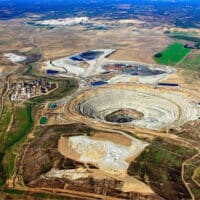-
June 2023 was the world’s warmest June on record
June featured unprecedented Canadian heat and wildfires, record-low Antarctic sea ice, and a strengthening El Niño.
-
Study shows methane leaks put climate risk from gas ‘on par with coal’
If fracked gas leaks, even a little, “it’s as bad as coal,” said the lead author. “It can’t be considered a good bridge, or substitute.”
-
Nanoplastics are entering our bodies
The air is plasticized, and we are no better protected from it outdoors than indoors.
-
They must think we’re stupid
The fox is in charge of the chook house. Dracula is guarding the blood bank. And the CEO of one of the biggest oil and gas companies in the world will preside over the big United Nations climate conference at the end of this year.
-
Renewable energy development is less important than stopping Chinese industry!
There’s a photovoltaic war to prove it-but China’s won it for now.
-
Deadly hazards of capitalist profit system
The beginning of July saw the hottest days on record globally.
-
Despite warnings, IAEA approves Japan release plan for contaminated Fukushima water
“Piping water into the sea is an outrage. The sea is not a garbage dump,” said one local fisherman earlier this year.
-
33,147,744 people in the United States currently face extreme weather alerts
Climate change is making weather more extreme. This tool shows how many people across the United States face risks right now from wildfires, flooding, tropical storms, or extreme heat.
-
Planet Earth is ‘quite sick’: 7 of 8 boundaries for safe and just world already breached, study says
“Nothing less than a just global transformation… is required to ensure human well-being,” researchers wrote.
-
Let’s get out from under the carbon military boot print
The USA and its allies pose themselves as “Global Leaders”. They could and should be, as they are the countries with the greatest concentrations of wealth, power and technical know how, communications and education, but they are falling horribly short; because they see leadership as the same thing as dominance–and subordinate everything else to that.
-
Climate collapse threatens slide to fascism and war
More and more, desperate people seeking refuge in Europe are not just fleeing from economic disaster and war. Many are also refugees from climate collapse.
-
Lessons in freedom: Agroecology, localization and food sovereignty
Farmers from across the Americas are working together to envision a new food system based on food sovereignty and political justice.
-
Global warming and water privatization
Uruguayan President Luis Lacalle Pou recently declared a state of emergency in the capital, Montevideo, due to water shortages.
-
Two episodes at sea: The submersible Titan and hundreds of refugees drowned in the Mediterranean
It is inevitable that such an event, in which there is a race against time and the elements, should attract the interest and concern of tens of millions.
-
Europe – fastest warming continent in world since 1980s, says WMO
Temperatures over Europe have warmed significantly over the 1991-2021 period, at an average rate of about +0.5 °C per decade, making it the fastest warming region of all the WMO Regions
-
Canadian looting of Zambian resources led to debt crisis
While a geopolitical tussle between Washington and Beijing over Zambia’s debt default has received significant international attention, Canada’s contribution has been largely ignored.
-
Is the Planet a factory?
The 2019 Global Climate Strike—in which more than 6 million people from 150 countries partook—is a misnomer.
-
From net zero to glyphosate: Agritech’s greenwashed corporate power grab
Big agribusiness and ‘philanthropic’ foundations position themselves as the saviours of humanity due to their much-promoted plans to ‘feed the world’ with ‘precision’ farming’, ‘data-driven’ agriculture and ‘sustainable’ production.
-
For Argentina’s small farmers, the land is predictable but the markets are not: The Twenty-Third Newsletter (2023)
In 2021, the World Trade Organisation (WTO) noted that Argentina remains ‘a major exporter of agricultural products’, which, at that time, accounted for nearly two-thirds of the country’s exports (as of April 2023, agricultural goods accounted for 56.4% of the country’s exports).
-
Is Nuclear Fusion Energy Salvation? Eternal Energy = Eternal Damnation
Or is Eternal Energy = Eternal Damnation?

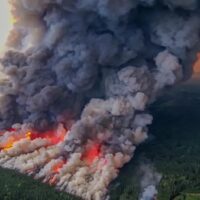
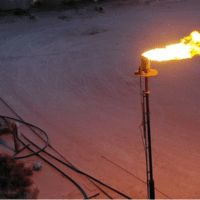

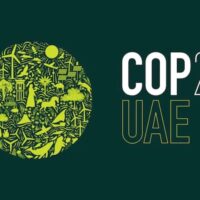

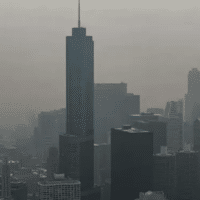
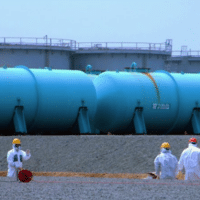
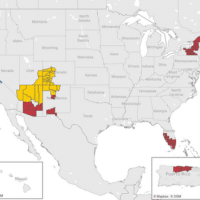

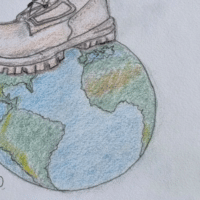
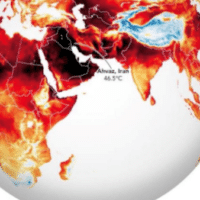


![The submersible Titan. [Photo: OceanGate Expeditions]](https://mronline.org/wp-content/uploads/2023/06/e6f25112bb4b1f0d1d98d0244b6324364d14d0eb-200x200.jpg)

